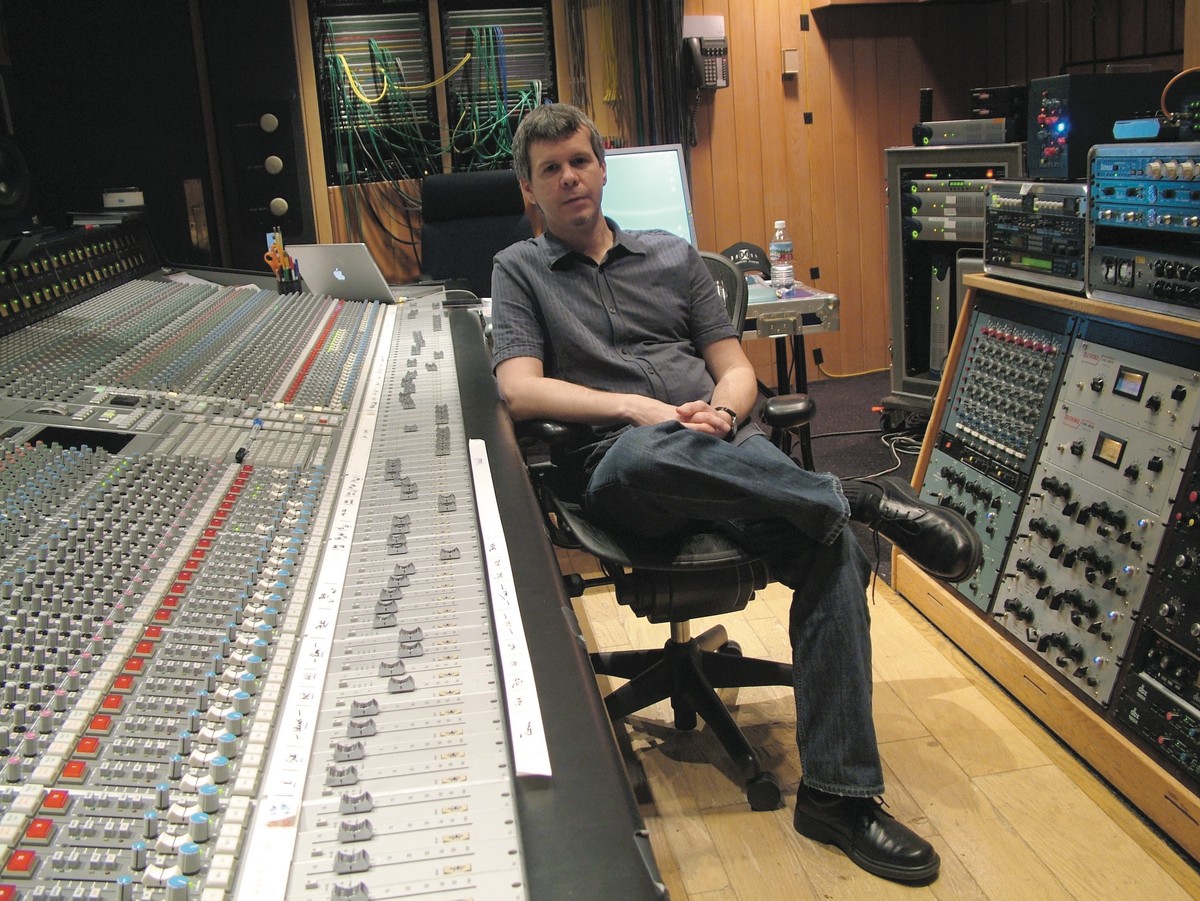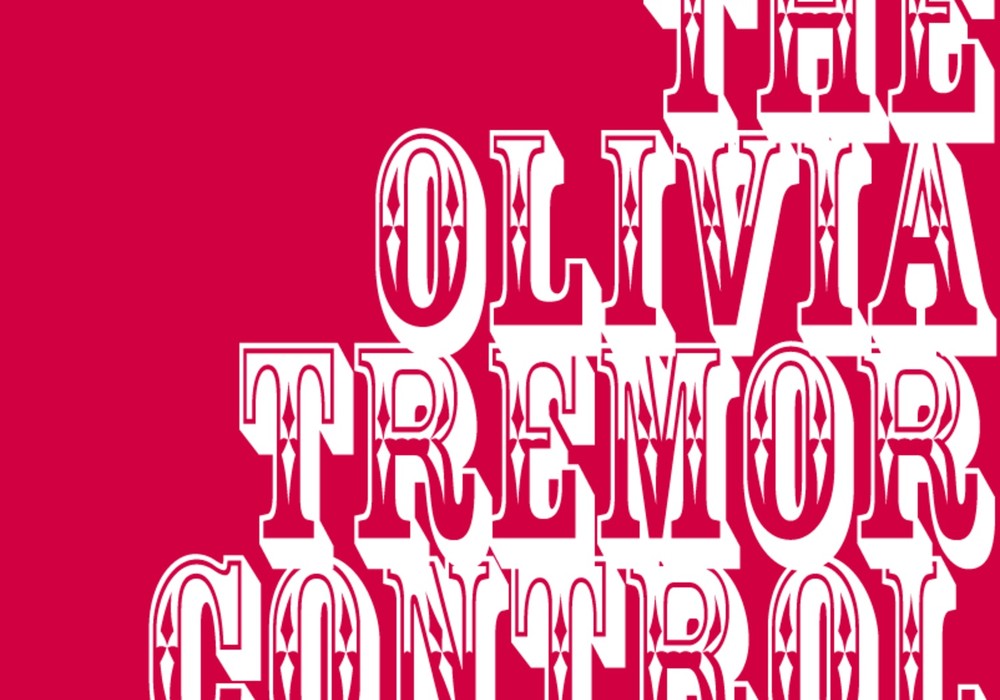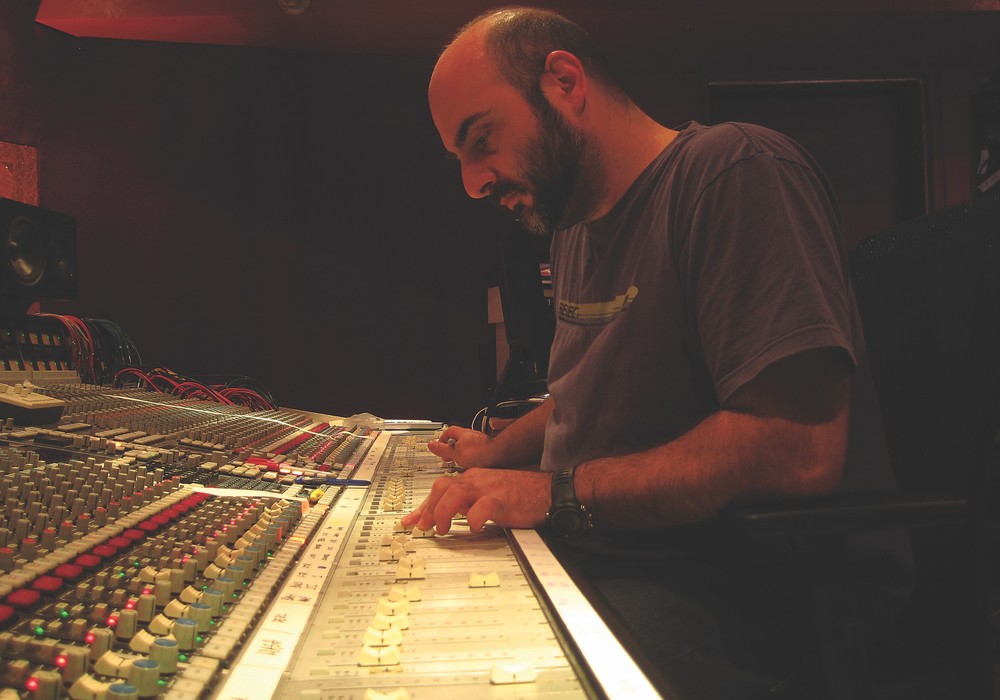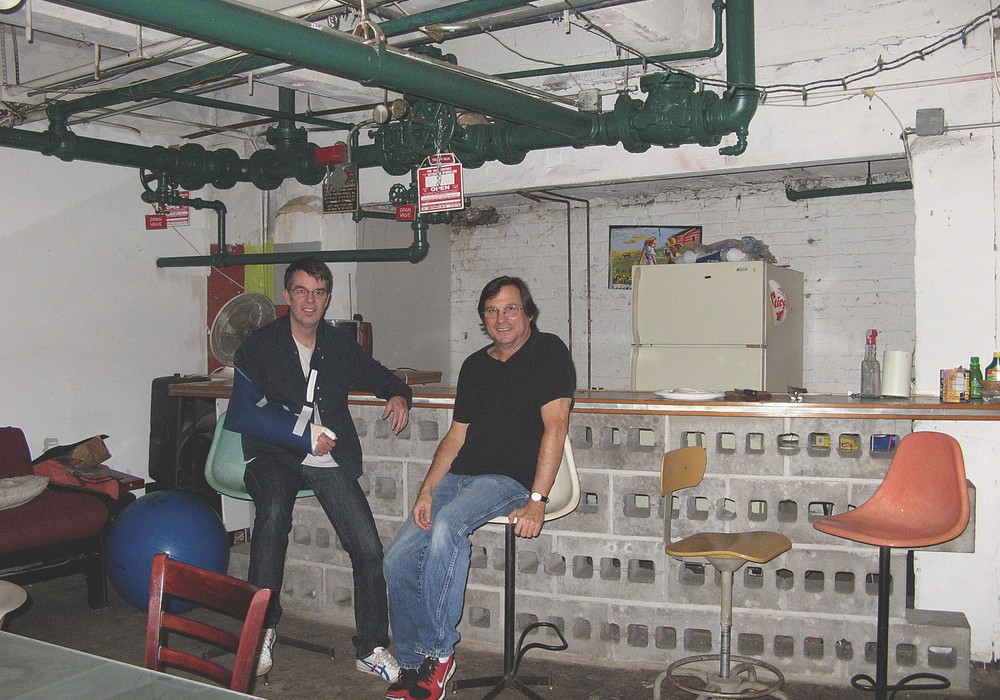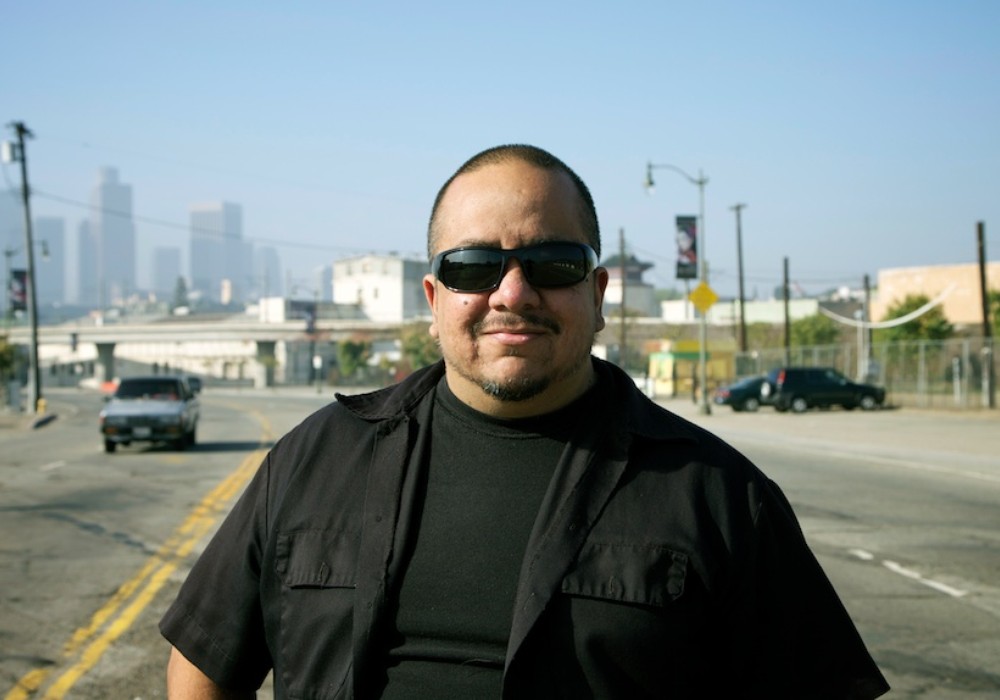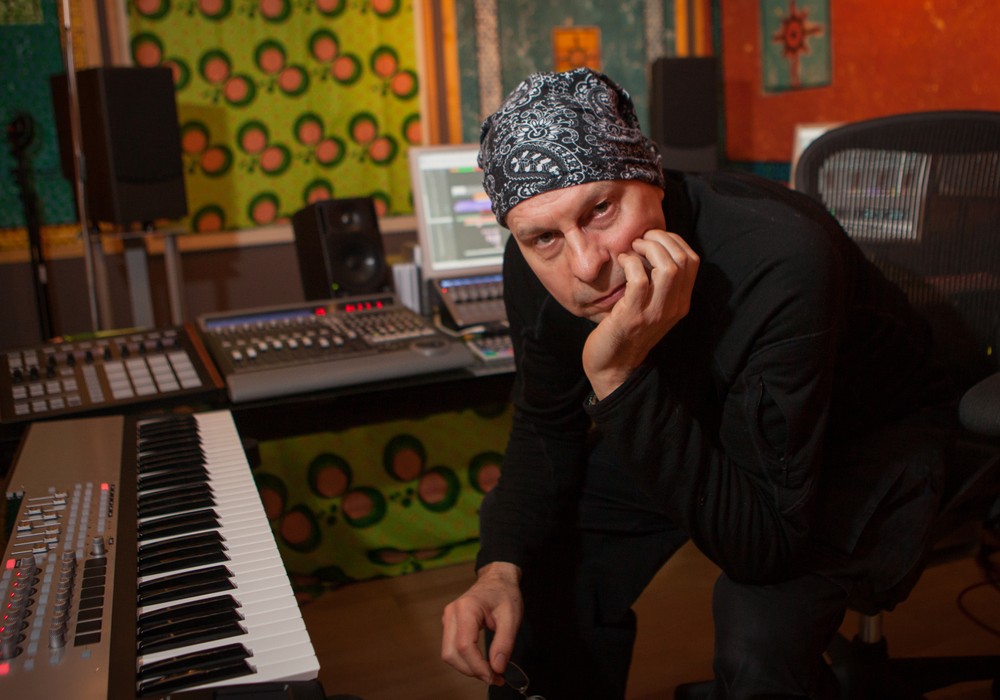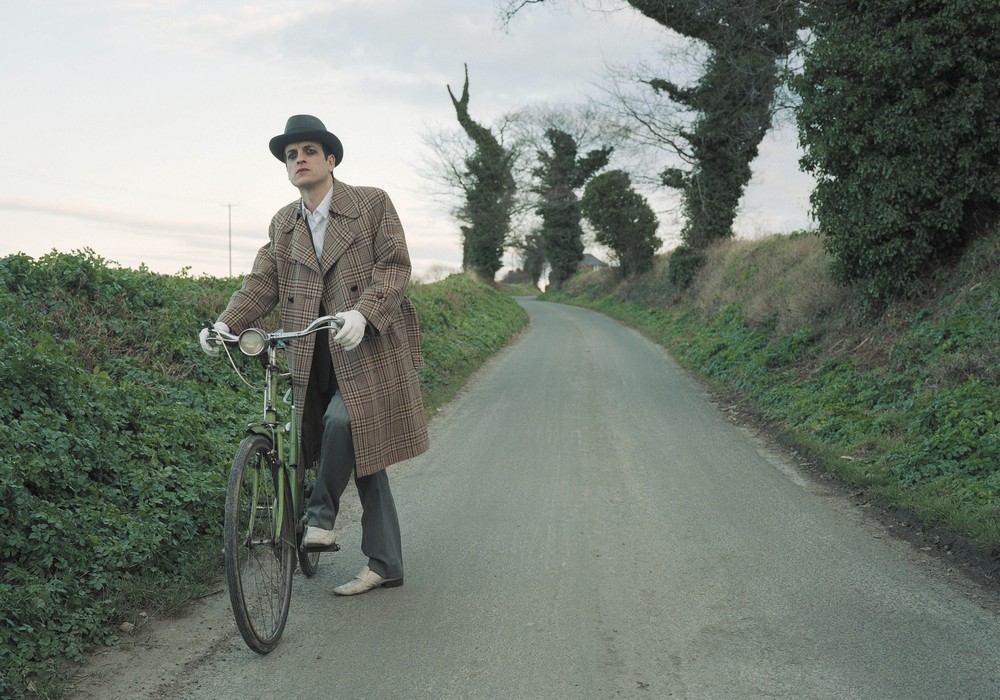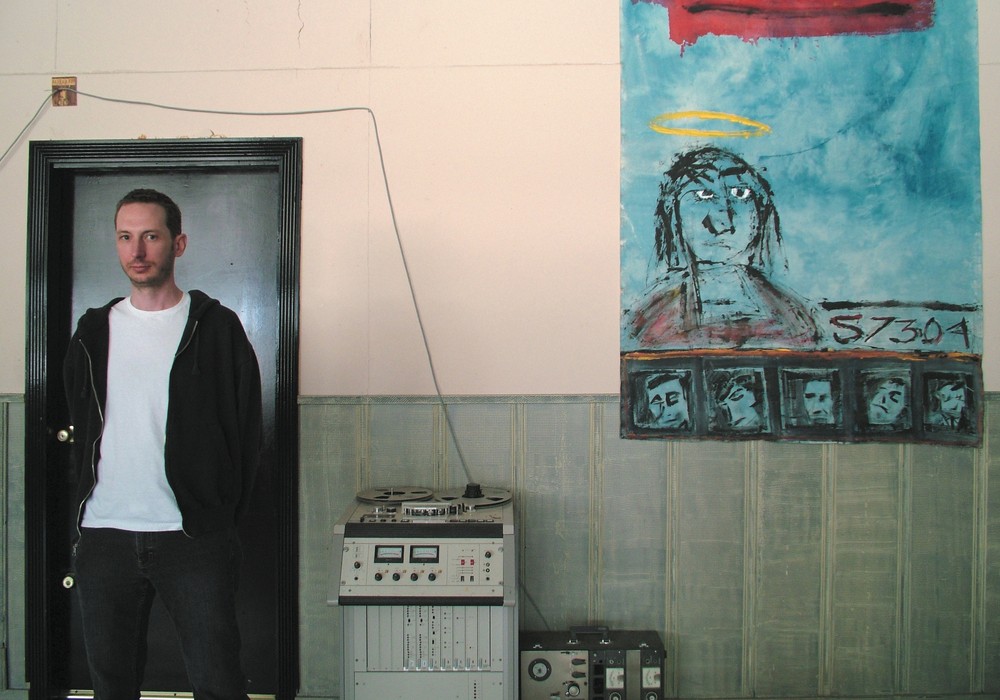Looking at the world of professional producing, mixing and engineering, one could be excused in thinking that certain people only work within specific genres of music. Names get associated with bands, scenes and styles — and in general the recordist in question has to run with it to a degree because they need to work, like we all do.
Then there's someone like John Paterno. John works as a producer and engineer in Los Angeles. He will mention in the same sitting sessions with Grammy-winning Latino pop artist Soraya, engineering for Mitchell Froom, work with Robben Ford and even tracking the new Robbie Williams CD, Intensive Care (with Stephen Duffy writing and producing). Add that he's worked with Mia Doi Todd, Bonnie Raitt, The Warlocks, The Thrills, Joan Osborne, Vonda Shephard, Tim McGraw, Los Lobos and Badly Drawn Boy. It's a hell of a discography, but all over the map.
He's also a calm and knowledgeable presence online, notably on the gearslutz.com forums, where you'll find his experience and patience a guiding light.
But is John Paterno a mercenary, just plying his trade and making money? Is he another cog in the L.A. music industry? I think he's simply a great producer/engineer/mixer who's finding his way along a career path like many other folks. Plus he's a nice guy!
John, how the hell did you end up in L.A.? You're from Florida, right?
Yeah, I grew up in South Florida. I moved down there when I was 12 and ended up in the University of Miami. When I graduated, there were three places to go: New York, Nashville, or L.A. I did not want to stay in Miami. New York I would've gone to, but I had a lot of friends in L.A. Joe Barresi is one of my good friends and there were a couple of other people who graduated before I did, and so I came out here.
Was that a tough move?
Yeah. I moved out in May 1990, so I've been here for 15 years now. Fortunately I came out here with a job.
Really?
It was the whole thing where you send out a bunch of resumes and nobody calls you back. I had one interview at The Complex as a tech. I figured it would be a job and I could at least get in, but after the interview I found out that everybody quit so I had no place to go. But I had been hanging out here with Joe and the manager of a studio in the Valley called Cornerstone. He liked me, so he said to Joe, "Hey, did your friend John find a job yet?" Two weeks before I moved out, I had a job. Very lucky.
You also have a minor in electrical engineering?
It was either a minor or one, three credits short of an official minor. Miami was great because it's a music degree and also a strong electronics background. You have to be accepted into the music school, then you also have to take the electronic classes.
Which includes math?
Exactly. Calculus, physics, stuff like that.
Was that pretty tough, going through school like that?
Yeah, it was really intense, but I think when you're young you don't really know any better. You're just kind of goin' for it, you know? I would go from a jazz arranging class to an acoustics class. In one class we had to design a studio, complete with blueprints. In the other class, you had to do a big band chart. So I would go back and forth between writing blueprints and coming up with a chart, then writing out all the horn parts. It was crazy, but it was fun.
Does all that kind of come into play in your life now?
Every day. At the very least I spent $40,000 and learned how to read a chart, which helps. I know where bar 53 is. I can say, "Get in on the end of two on fifty-three."
That's nice. I can't do that!
It all helps. There are a lot of people who don't [know], but they can pick it up. It's whatever I can do to be helpful, and sometimes that's the thing that gets the session cruising.
On this project here you're hired as an engineer, but on projects where you're hired as a producer, do you find yourself arranging?
Yeah, absolutely. The production thing is so much fun for me because you're involved from the get-go. With a band like The Black Mollys, they sent the CD and we worked on the songs. A couple of them were just little ideas and I'd make suggestions. Tory [Stoffregen], the main guy in the band, was really great. I'd have a couple of really dumb ideas that he'd be completely fine with trying, but there were also ideas that he hadn't thought of that worked. That was the whole process. You'd go in and rehearse with the band and it was the same thing: "What if you do this? What if you play this figure on the toms this way instead of that way?" And to the bass player, "What if you do this little thing?" Sometimes just these little suggestions can really focus things. I'm totally into that and then, you know, just taking it and making it sound like a record in the end.
One of the things I see sometimes with people just starting out is a bulldozer effect. How do you initially...
The rest of this article is only available with a Basic or Premium subscription, or by purchasing back issue #54. For an upcoming year's free subscription, and our current issue on PDF...
Or Learn More


